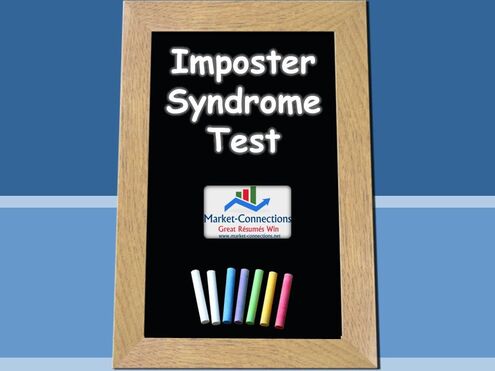Discovering Hidden GemsNo matter your location, it's likely that you're not fully tapping into the resources available in your community. Adventures may be waiting just around the corner from where you live! Unless you're in a tiny community, there are probably numerous activities and businesses at your disposal in your city or town. Here are some suggestions to consider before embarking on your exploration: 1. Create a list of places in your community that you've heard about but never visited. For instance, if there's a factory producing a unique product that offers regular tours, add it to your list.
2. Become a regular at a local hangout. Whether it's the nearby coffee shop, a bookstore, or a grill cafe a few blocks away, find a comfortable spot to frequent and connect with fellow community members. Genuine connections are formed by stepping out and meeting both old and new friends. 3. Uncover freebies. Many communities host free events and have accessible venues. Take advantage of the free offerings your community provides, such as public libraries, parks, and nature sanctuaries. 4. Explore local museums. Even in smaller towns, there are often one or two museums waiting to be discovered. It's an enjoyable way to learn something fascinating about your community. 5. Reconsider tourist attractions. There's a reason why people travel great distances to experience your local tourist attraction. Find out what makes it special! Even if you think these attractions aren't your cup of tea, you won't know until you experience them firsthand. 6. Take notes when exploring your community. Actively seeking out new places may reveal local businesses and organizations you haven't yet visited.
* * * * * * * * * * * * * * * * While it's easy to take your community for granted, remember that you reside in one of your favorite places in the world. Seek out special attractions and discover new aspects you love about your area. Make an effort to know as much as possible about where you live. The process of learning about your home will strengthen your ties with the community and enhance your life in unexpected ways. You'll gain knowledge, satisfaction, and likely form a few friendships along the way! About the AuthorMandy Fard is a Certified Professional Resume Writer (CPRW, CMRW) and Recruiter with decades of experience in assisting job seekers, working directly with employers in multiple industries, and writing proven-effective resumes. Unleashing Success Through Humility and IntensityIn a world that often encourages self-promotion and the pursuit of personal goals, there's immense value in cultivating a balance between humility and intensity. These traits, seemingly opposite, actually complement each other perfectly, creating a powerful synergy that fosters genuine confidence and propels individuals toward their aspirations. The Value of HumilityHumility is a trait often misunderstood as a lack of ambition or drive. Yet, those who exhibit humility often exude a quiet confidence that draws people toward them. It takes a supreme belief in oneself to avoid the need to boast about accomplishments. This kind of humility creates an inviting environment where others feel valued, allowing for better collaboration in both social and professional settings. Humility also contributes to stronger relationships, with humble individuals often serving as the glue that holds groups together. Their outward focus and willingness to prioritize the group's needs over personal recognition position them as natural leaders, garnering respect and trust from others. Beyond interpersonal benefits, humility also contributes to physical well-being. Humble individuals generally experience less relationship stress, which translates to better health outcomes, stronger immune systems, and faster recovery from illnesses. Harnessing the Intensity WithinWhile humility is essential for fostering strong connections, intensity is the driving force that transforms dreams into reality. The secret to achieving big goals is to load them with intensity—make them big, think big, and act big. Make It About You: Embrace the role of the hero in your own story. By focusing on your strengths and addressing your weaknesses, you can build a foundation for success. Visualize your future self after achieving your goals and use that vision as motivation to stay on track. Dream Big: No one ever reached the pinnacle of success by staying small. Identify your most ambitious goals and ramp them up. Whether it's becoming a leader in your industry or achieving a personal milestone, intensify your vision to make a significant impact on the world. Go for It: Big dreams only come to life through action. Create a plan that outlines the skills and resources you'll need and commit to dedicating your energy toward your goals. By acting with determination and intensity, you set yourself on a path toward success. The Synergy of Humility and IntensityCombining humility and intensity creates a unique and powerful dynamic. Humility keeps your ambitions grounded, ensuring you remain approachable and relatable. Intensity, on the other hand, provides the drive and energy needed to make your dreams a reality. Together, these traits form a balanced approach that not only propels you forward but also attracts others to your journey. About the AuthorMandy Fard is a Certified Professional Resume Writer (CPRW, CMRW) and Recruiter with decades of experience in assisting job seekers, working directly with employers in multiple industries, and writing proven-effective resumes. Transforming Productivity and Job LandscapeThe workplace is witnessing a growing adoption of Artificial Intelligence (AI), offering immense potential to revolutionize our work methods and enhance productivity at work. Let's explore some key ways in which AI is influencing the workplace: One significant impact of AI is its ability to automate routine and repetitive tasks, empowering employees to redirect their efforts towards more intricate and innovative work. This shift allows for increased job satisfaction among workers and paves the way for heightened productivity. Automation and Job DisplacementThe increasing use of automation is a growing concern as it has the potential to displace jobs. As more routine and repetitive tasks are automated, some jobs may become redundant or some industries may decline. This can have significant economic and social implications for workers in specific industries or regions. However, it is essential to note that automation can also create new job opportunities, particularly in areas that require technology and data analysis skills. Everyone is assuming that organizations will be mindful of the potential impact of automation on their workforce and will take steps to reskill and upskill their employees to adapt to the changing job requirements. Hopefully, policymakers will consider measures to support workers affected by job displacements, such as unemployment benefits and job retraining programs. The good news is the responsible use of automation can help employees be more efficient at work while creating new job opportunities and contributing to economic growth.
In conclusion, while automation may displace specific jobs, it also has the potential to create new opportunities and improve overall productivity. Individuals and organizations must adapt and embrace new technologies to stay competitive in the job market. Augmenting Human CapabilitiesAugmenting human capabilities means that human capabilities are being enhanced by artificial intelligence. Augmented intelligence is a branch of machine learning within the domain of AI aimed at improving human intelligence rather than functioning autonomously or entirely replacing it. Its purpose is to enhance human decision-making abilities, leading to better responses and actions. This is accomplished by providing humans with improved decision-making capabilities. The impact of this will be twofold. Firstly, it will stimulate innovation and create more opportunities, expanding horizons for all involved. Secondly, it will elevate the significance of human-to-human interactions, augment human abilities, and ultimately boost individuals' happiness and contentment with life. As humans, we are constantly growing and evolving. No one "has it all figured out so, AI will help you reduce human error in many contexts like driving, the workplace, medicine, etc. Here are some examples of how AI is augmenting human capabilities:
In summary, AI is augmenting human capabilities by providing tools and technologies that enhance decision-making, automate routine tasks, improve accessibility, personalize experiences, enhance learning, provide assistance, and augment creativity. Ethical ConsiderationsAs artificial intelligence (AI) continues to advance and become more integrated into our daily lives, it's important to consider the ethical implications that come with this technology. Here are some of the key ethical considerations when it comes to AI:
In conclusion, as AI continues to become more integrated into our lives, it's important to consider the ethical implications of this technology. By addressing issues such as bias, privacy, accountability, transparency, safety, and human autonomy, we can ensure that AI is developed and used in a way that benefits society as a whole. About the AuthorMandy Fard is a Certified Professional Resume Writer (CPRW, CMRW) and Recruiter with decades of experience in assisting job seekers, working directly with employers in multiple industries, and writing proven-effective resumes. What is Growth MindsetDo you believe that your abilities, intelligence, and talents are fixed traits that cannot be changed or developed? Or do you see yourself as someone who can continuously grow and develop your skills and abilities through effort and persistence? These questions lie at the heart of growth mindset definition. Coined by psychologist Carol Dweck, the term "growth mindset" refers to the belief that one's potential is not fixed, but can be developed through dedication, hard work, and resilience. In contrast, a fixed mindset assumes that abilities and intelligence are predetermined and cannot be changed. In this blog post, we will explore the definition of growth mindset in more detail, examining its definition and characteristics. Whether you are a student, professional, or simply someone interested in personal development, understanding the principles of growth mindset can help you to shift your mindset easily, achieve your goals, overcome obstacles, and lead a more fulfilling life. So, let's dive in and explore the power of growth mindset! Five Growth Mindset Definitions
Addressing Core Limiting BeliefsLimiting beliefs are beliefs you hold that keep you from doing what you want to do. The human mind has an amazing ability to come up with infinite reasons why you can’t do something. There is a good chance you have limiting beliefs stopping you right now and you don’t even realize it. Limiting beliefs come in a variety of shapes and forms. They might be thoughts like:
It could be any negative recurring thought that stops you. Regardless of what the specific thought it, this type of negative thinking will hold you back from achieving your goals. To eliminate them, you first need to identify and address them.
Is It Time to Shift Your MindsetIf you are experiencing low energy, or are not in good spirits, you may want to consider altering your mindset. When you are down, it can be due to negative thoughts. Perhaps you start to dwell on everything that is going wrong. You may assume that you aren’t where you thought you would be and it leaves you longing for fulfillment. When you start to have negative thoughts, you are setting the stage to beat yourself down. What’s worse is this situation continues to grow. Negativity feeds on itself. When you put yourself down, you will eventually put others down. You will look for others who share your negativity because misery loves company. As the negative energy thrives, you fall deeper into the mental abyss. To turn this around, you first have to realize that it’s happening. No one likes to admit to doing something wrong, but negative thinking is wrong if you are engaging in it. You have to try and reflect on your life. Think back to when you were happy. Was it a couple of months ago or a couple of years? That will give you a good indication of when you started with the negative thinking. When you were happy, it’s unlikely you were thinking negatively. Once you have identified that you have a negative mindset, work hard to introduce positivity into your life. Set up a bad thoughts money jar and whenever you say something negative, put money into the jar. You can do this at work, at home, or both. When you see the jar filling up, you know you have more work to do. Avoid other negative people as much as possible. They will try to bring you back down, and you may even let them do it. Limiting your exposure to these people is a great step to take on your journey towards positivity. SOURCE: About the AuthorMandy Fard is a Certified Professional Resume Writer (CPRW, CMRW) and Recruiter with decades of experience in assisting job seekers, working directly with employers in multiple industries, and writing proven-effective resumes. How to Make Your Goals Doable and RewardingScience has proven that micro-habits are much more effective than big, hairy goals. And yet, when another New Year’s rolls around, the first thing we do is make a huge list of resolutions we want to keep. However, using micro-habits to make changes in your life sets you up for success because of the consistent progress you see. Sticking to our New Year’s goals this year doesn’t need to be hard or scary. Try these four easy strategies to make your goals for the new year doable and rewarding. Choose One ThingChoose One Thing--one reason we rarely accomplish any of our New Year’s resolutions is because we make a lot of them and they are all massive. So, this year, instead of a laundry list of changes, decide which goal is the most significant in your life. For example, since our health impacts everything we do, you may decide that getting healthier is the one area which deserves your focus. Break it DownBreak It Down—another way we make things hard for ourselves is by stating our goal as something ambiguous and undefined. Like in the example above, “Get healthy” as a goal is sure to fail. Why? You'll fail because the goal is too vague. Instead, you may want to start a list of all the steps you could take to become healthier. You could include things like drinking eight glasses of water per day, exercising for twenty minutes each day, eating a salad for lunch five days a week, drinking only two cups of coffee or soda per day, and getting at least eight hours of sleep per day. Then, choose just one of those to start. Starting with the easiest one is okay. Once that becomes a habit, you can move on to the next one on the list. Another important aspect is to make the action toward your goal doable. If drinking eight glasses of water each day sounds impossible, how about drinking two? Once you’ve reached two glasses each day, you can step it up to three. That’s how we make even challenging goals stick. Choose a PromptChoose a Prompt—the easiest way to make sure you include the action steps you need to take to meet your goal is by taking them immediately after you do something that you already do each day. For example, if your goal is to drink eight glasses of water per day, choose prompts to help you remember to drink water. Maybe you decide to take three big gulps of water after hitting “send” on each email throughout the day or a whole glass before each meal and on each break you take during the day. Connect it to a Positive FeelingConnect it to a Positive Feeling—how do you feel at the end of the day when you stay hydrated? Sure, you might not enjoy drinking water all day, but by connecting the action to still having lots of energy after you’ve worked all day, for example, it’s easier to get up and do the same thing again the next day too. Before you know it, drinking enough water each day has become a positive habit—a goal you’ve reached. Once that’s in place, you’ll be ready to take on one of the others on your “Get healthy” list. YOU MAY ALSO LIKE: CAREER DEVELOPMENT PLANNER (www.market-connections.net/blog/career-development-planner-2023) NEW YEAR NEW JOB (https://www.market-connections.net/blog/newyear-newjob) About the AuthorMandy Fard is a Certified Professional Resume Writer (CPRW, CMRW) and Recruiter with decades of experience in assisting job seekers, working directly with employers in multiple industries, and writing proven-effective resumes. Imposter Syndrome Signs and Solutions
Do you suffer from a suspicion you might be a big fraud and everyone’s going to find out? It’s natural to sometimes feel inadequate but you could be suffering from a much more serious ailment known as imposter syndrome. Start with taking an imposter syndrome test.
What Is Imposter Syndrome?
Imposter syndrome is the internal belief that you're not as competent as others think you are. It manifests itself when people give you praise or positive feedback. You might feel undeserving, even though all the evidence suggests that you're highly skilled. At its worst, you may feel like a fraud.
The concept was first coined in the 1970s by psychologists to describe an experience often felt by athletes and business executives. They discovered that even the most recognized individuals often failed to understand their worth, which could cause performance problems. Imposter syndrome can cause a great deal of damage to your work, career, and personal life, so it's important to recognize the signs early and take action to stop it.
10 Solutions to Overcoming Imposter Syndrome
There are five different imposter syndrome types. Know the Signs. You’ve learned the signs here, so you can put this to use right now and learn how to overcome imposter syndrome. Pay attention to your words and actions and interrogate the feelings that arise. Where are they coming from and why?
Want to learn more about how you can fight imposter syndrome? Head over here:
...
About the AuthorMandy Fard is a Certified Professional Resume Writer (CPRW, CMRW) and Recruiter with decades of experience in assisting job seekers, working directly with employers in multiple industries, and writing proven-effective resumes. The Imposter Syndrome Self-TestIt is very important that you confirm if you are experiencing imposter syndrome or not. Just having some thoughts and feelings about being an imposter now and again is not imposter syndrome. This is a natural thing that the vast majority of people experience. One of the most effective ways to confirm that someone is experiencing imposter syndrome is to ask the right questions. Dr Valerie Young identified five imposter syndrome types from her research. The information can be used as a basis for the questions. The imposter syndrome test may help overcome imposter syndrome by identifying the type of traits that someone may have related to imposter syndrome. Questions to Test for the Perfectionist ImposterA lot of people who experience imposter syndrome develop perfectionist tendencies. There are some questions that you can ask yourself to confirm whether you are a perfectionist or not. This is important and you need to answer any questions that you ask honestly. Some typical questions that you could ask yourself to test for the perfectionist imposter are:
Questions to Test for the Superhero ImposterThe superhero imposter will always accept new work even though they have a lot on at the moment. They believe that they need to work a lot harder than everyone else to prove that they are not a fraud. Here are some good questions to test for superhero imposter tendencies:
Questions to Test for the Natural Genius ImposterThe natural genius imposter is very knowledgeable in one subject only. With everything else, they are average at best. A natural genius finds it difficult to explain things and learn new things and will be devastated if their expert knowledge is called into question. These are good questions to test for the natural genius imposter:
Questions to Test for the Soloist ImposterA soloist imposter is someone that wants to work alone. This is because they do not want to be found out as a fraud. Here are some questions to ask to test for the soloist imposter:
Questions to Test for the Expert ImposterExpert imposter already knows a lot but they feel that they need to learn more. They will often want more training even though they don’t need it or will insist on performing research when this is not necessary. Ask these questions to test for expert imposter:
About the AuthorMandy Fard is a Certified Professional Resume Writer (CPRW, CMRW) and Recruiter with decades of experience in assisting job seekers, working directly with employers in multiple industries, and writing proven-effective resumes. Five Types Of ImpostersOne of the most influential people in the world of imposter syndrome is Dr Valerie Young. She has written a book on the subject which is based on her research. As a result of her research, Dr Young has also identified five distinct types of imposters. The information she provides can also be used as a basis for the Imposter Syndrome Test. This is important for you to know as it can help you to overcome imposter syndrome. The Perfectionist ImposterSome people that experience regular feelings of being a fraud will develop perfectionist tendencies. They start to believe that they need to provide proof to others that they are not an imposter and doing everything perfectly is the best way to do this. But nothing and nobody is perfect in this world so this is doomed to failure from the start. When you are a perfectionist, it will take you a lot longer to complete anything – that’s if you can complete anything at all. Perfectionists tend to go over their work time and time again and make tweaks to it each time in the name of perfection. It is always likely that a perfectionist will have many unfinished tasks because they are not satisfied with the quality of the work they have done. The Superhero ImposterThe superhero imposter is never too busy to take on more work. They are an overachiever and it is a way for them to prove that they are not a fraud. As a superhero imposter, you will work much longer hours than your colleagues. When you do finally go home, you will probably take some work with you. It is rare for a superhero to take a day off because this has no meaning to them. They have trouble focusing on one thing at a time and become a jack of all trades. A superhero is a juggler that always has a lot of balls in the air. The Natural Genius ImposterThis is a person that will be very good at one thing and distinctly average at everything else. They will be well-known for their specific talent and people will usually give them problems to solve in this area. But others will never learn anything from a natural genius imposter. This is because they have great difficulty explaining how they arrived at a solution. These people usually struggle with learning new things and often believe that they are a failure because of this. If their knowledge of the one subject was ever to let them down then this would be very difficult for the natural genius to handle. The Soloist ImposterSomeone that is a soloist imposter likes to work alone as much as possible. This is because they are terrified that someone else will find out that they are a fraud. A soloist can often be anti-social but not always. But they are always protective of their big imposter secret. The Expert ImposterThe expert imposter is very interesting. To the rest of the world, it is obvious that the person has a lot of knowledge, but to the expert they feel like they do not have enough knowledge. When they are given a task to complete, it is likely that they will insist on performing research even though they already have all of the answers. About the AuthorWMandy Fard is a Certified Professional Resume Writer (CPRW, CMRW) and Recruiter with decades of experience in assisting job seekers, working directly with employers in multiple industries, and writing proven-effective resumes. Active Listening ExamplesDeveloping listening as a skill is an important part of life. Your listening skills can impact many aspects of your life, including how well you do your job or the quality of your personal relationships. If you look for active listening examples, you will find it many communication scenarios. Although good communication skills include the ability to share ideas through speaking or writing, listening is a key essential component of good communication. Below are traits described as active listening examples: Be attentiveGive the speaker your undivided attention. Turn your body towards them and maintain eye contact. In addition to listening to the words being spoken, pay attention to what is said through nonverbal communication, like body language and gestures, to really understand their message.
Give the speaker cues to show that you are listeningConfirm that you're listening by using with visual cues through gestures and body language.
Respond to their messageMaintain a welcoming, open posture to show you're receptive to what the speaker has to say. This might include facing the speaker, leaning toward them, and staying alert. Short interjections like "uh-huh" or "yes" encourage them to tell you more.
Avoid interruptingAlways be sure to allow the speaker to complete his thoughts. Interrupting someone is both rude and disconcerting. It also prevents you from hearing the full message.
Focus on what the speaker is sayingIf you're not accustomed to focusing intently on the words being said, it may take some time to change your habits. As with anything, the more you practice, the better you'll become.
You'll be surprised at how differently you'll hear things as an active listener. If you follow these tips, you'll not only become an active listener, but a better communicator as well. SOURCE: https://www.Market-Connections.net/blog/Active-Listening-Examples About the AuthorMandy Fard is a Certified Professional Resume Writer (CPRW, CMRW) and Recruiter with decades of experience in assisting job seekers, working directly with employers in multiple industries, and writing proven-effective resumes. Listening as a SkillIf you want to know how to become an active listener you will need to learn certain traits about listening as a skills. Listening is a great skill to develop and it can improve all areas of your life. People love to talk and are always looking for someone to listen to them. Below are tips to facilitate active listening examples in daily life.
A good listener will also think before responding back. Again they often ask what if this person is correct in their way of thinking. People have the bad trait of speaking before thinking and this can lead to all kinds of awkward or difficult situations. It is perfectly normal for your brain to want to respond quickly, stop yourself and think before you speak! Sometimes it can be hard to stay focused on a person, it is normal to want to look away. If you find yourself doing this try nodding to the person or making direct eye contact with them. This signals to them that you are paying attention. If you really need to look away for a second, then muffle a cough behind your hand! Other tips that you might want to use to show that you are paying attention include:
Put these five traits into play consistently and you will become a much better listener for it. About the AuthorMandy Fard is a Certified Professional Resume Writer (CPRW, CMRW) and Recruiter with decades of experience in assisting job seekers, working directly with employers in multiple industries, and writing proven-effective resumes. |
Categories
All
powered by Surfing Waves
AuthorMandy Fard is a Certified Professional Resume Writer (CPRW, CMRW) and Recruiter with decades of experience in assisting job seekers, working directly with employers in multiple industries, and writing proven-effective resumes. Archives
July 2024
|
-
Greater Los Angeles
and Kern County
-
[email protected]
.













 RSS Feed
RSS Feed



